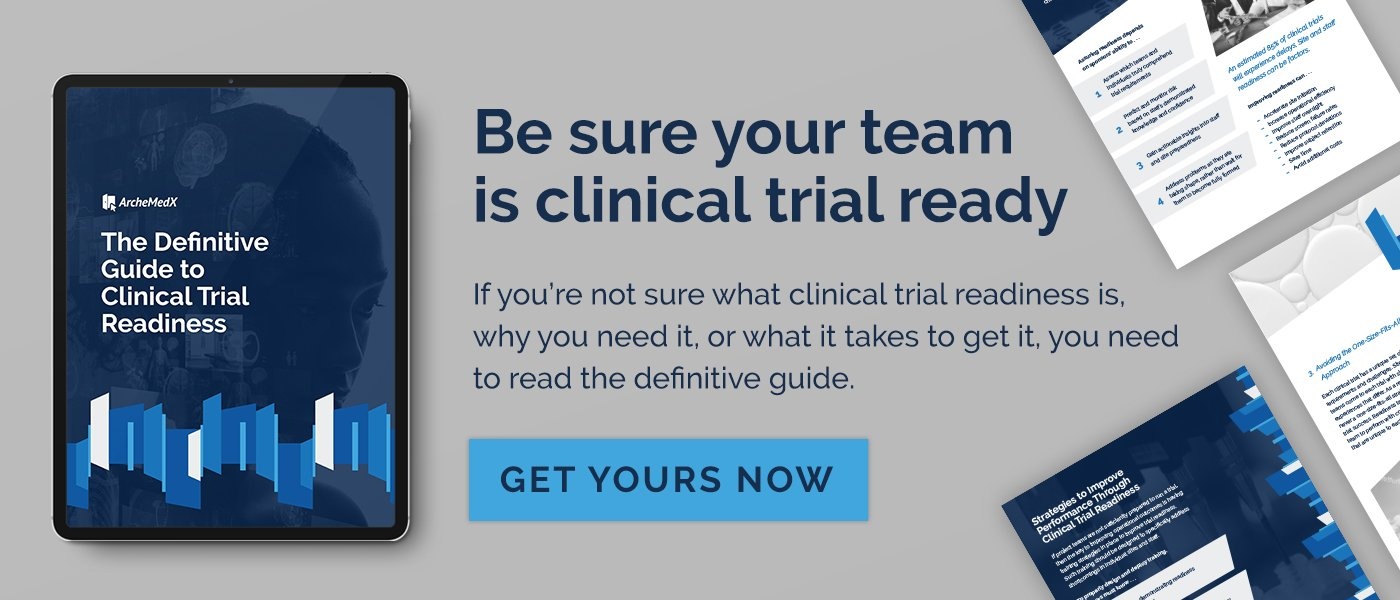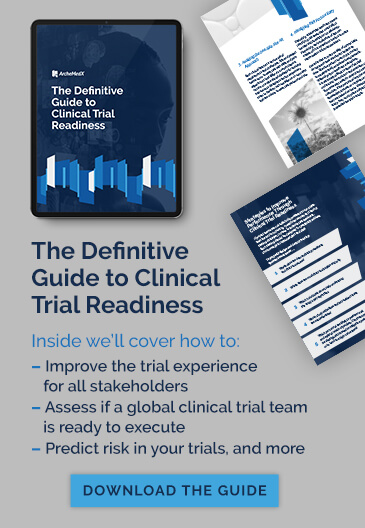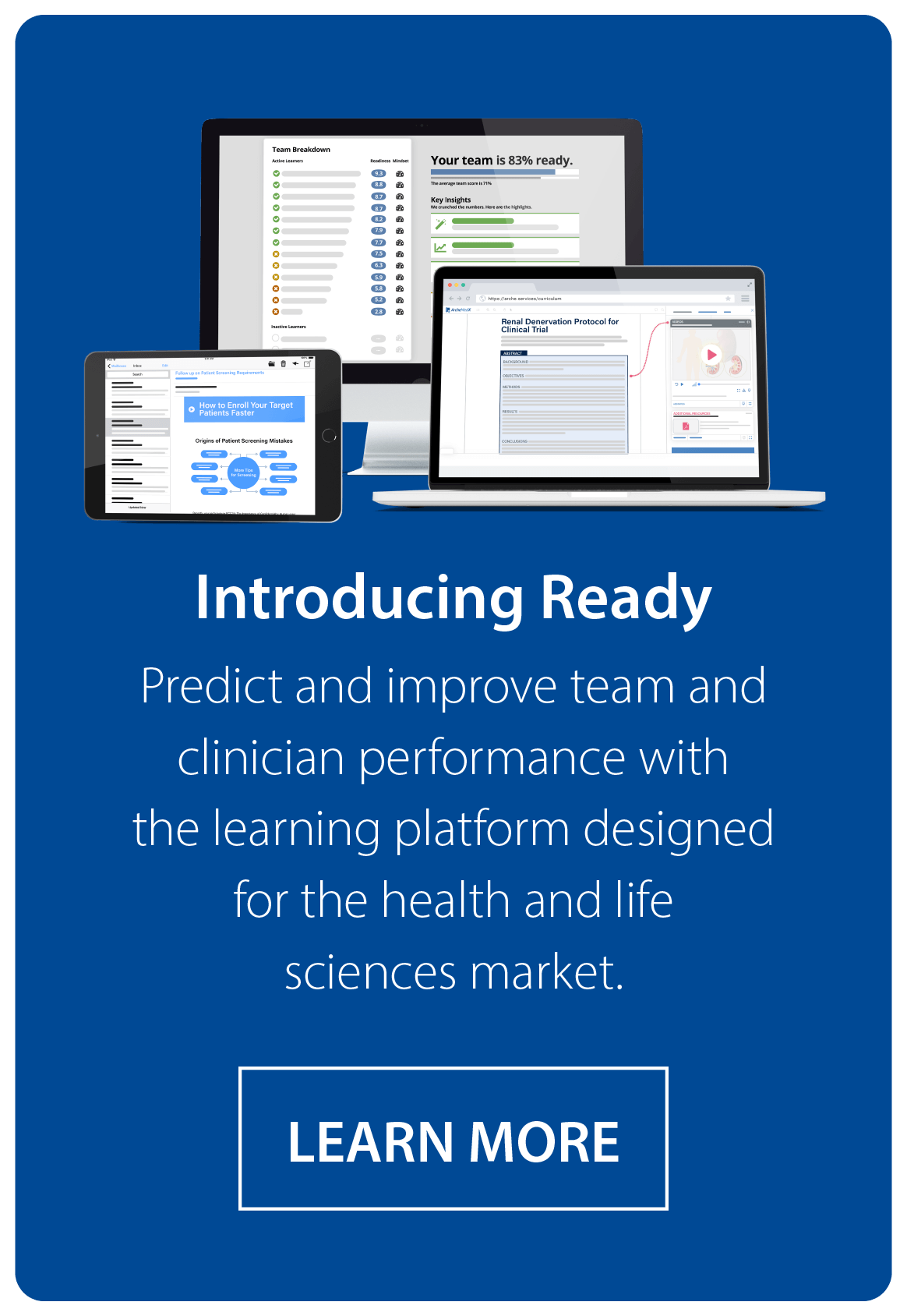The principal investigator (PI) meeting is a well-established (and expensive) tradition in the pharmaceutical industry. And, in our era of global programs, you might need to host multiple PI meetings: one for the Americas, one in Europe, one in Asia. Yet, no matter how many meetings you host, you will most likely face a recurring and costly set of challenges.
First, can you get the right players in the room?
- Despite your best efforts, up to 60% of Investigators may fail to attend the meeting…and that’s before we consider the impact of frequent staff changes over the duration of the study.
Second, how many attendees can sit through eight hours of PowerPoint presentations without losing interest or even falling asleep?
- As it happens, numerous brain studies show that the average attention span of an adult learner is only 10 minutes. Imagine how often attendees will become distracted if they are not interested in the topics being shared or not actively engaged in some way?
Third, have you heard of the forgetting curve?
- Even if you run a flawless meeting, most attendees will forget 90% of what they learned before they ever screen the first subject.
This means the real costs and challenges of getting everyone up to speed are much greater than the initial budget allocated for the investigator meeting.
Can this model be modernized? Made more efficient? Yes, of course it can. If we are open to new ideas, we can transform the traditional investigator meeting into a far more effective experience that lays the groundwork for a successful study, one with fewer missteps and less waste.
Let’s Prepare Content Based on What Attendees Already Know.
In preparing content for PI meetings, we typically start by guessing what attendees know and don’t know. We also guess about what content they will find challenging and what they will find easy. There’s no reason to play this guessing game today and waste valuable time during the meeting. Instead, invest in assessing your meeting attendees’ knowledge before finalizing meeting content — and make time spent at the meeting both more productive for you and more engaging for attendees.
How might this be accomplished? Some sponsors distribute a survey or ask for feedback after sharing a protocol synopsis. However, these informal approaches yield minimal feedback and insight from a limited number of potential attendees. A more novel, digital-based approach can be designed to engage PIs and Study Coordinators around content and critical questions ahead of time, providing valuable insight to meeting planners and content developers.
Let’s Properly Train Those People Who Won’t Attend the Investigator Meeting.
Not everyone who must perform at a high level on a clinical study will attend the investigator meeting. There will be scheduling conflicts, competing priorities, and travel constraints. Because the meetings are expensive, the number of people who can attend may be limited. Consider, too, that over the course of a program there will be staff turnover. New sites may be added. How will the newcomers be trained? How effective will the second-tier training be? While there are reasons to employ a train-the-trainer model, one industry insider described the approach as akin to the children’s game of “whisper down the lane”. There’s a clear problem with consistency.
Instead, why not capture those PI meeting activities in an enduring program that others can access as necessary on their own time and from their own locations? In addition to guaranteeing accuracy and consistency, such programs can be structured to provide insights that let sponsors and contract research organizations (CROs) know exactly how well material has been understood, where the learners’ strengths and weaknesses lie, and how well prepared the learners are for participation in the study.

Remember That Learning Is A Journey.
A PI meeting occurs at a moment in time. That “moment” could be close to the time when investigators will sit in front of their first subjects, or it could be many months prior. As mentioned earlier, numerous studies on adult learners tell us that 90% of what is learned will be forgotten after one week. How much of the information presented at your PI meeting will be retained months later when it must be applied?
Incomplete or lost learning leads to problems like protocol deviations and early high screen failure rates. Many of these missteps could be prevented if we accept that learning is a journey that should be personalized and reinforced over time.
Imagine if you could identify where participants were most at risk and then nudge them to dive deeper into those critical study objectives until they mastered the topic. Imagine if you could enable learners to increase and solidify their knowledge in the days and weeks that follow the meeting instead of forgetting most of what they learned. Imagine if you could give sponsors and CROs continuing insight into how well prepared the team is.
It’s Age-old But Brand-new.
Preparation. Education. Analysis. Feedback. They are all simple, timeless techniques. But paired with today’s most advanced software and systems, they can deliver never-before-seen levels of clinical trial readiness for sponsors and CROs. You might even decide that you really don’t need those PI meetings after all.
Need more help with your investigator meeting during the pandemic? Check out our new blog on how to perform a virtual investigator meeting in just four steps!





